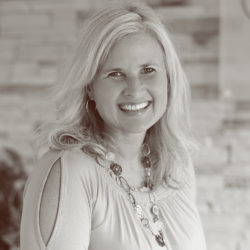We’re all familiar with grief, and everyone has experienced it at one time or another. Whether it results from the loss of a loved one or some other change in our lives like a job loss, grief is normal part of life. Grief allows us to recognize what we’ve lost and challenges us to examine and prepare for how our lives will change as a result.
Usually, we think of grief in individual terms, but COVID-19 is drawing attention to what many mental health professionals describe as “communal grief.” It refers to society’s reactions to overwhelming situations that unexpectedly change life as we know it. Think of the days and weeks after the 9/11 terror attacks. Many of us described feeling shaken and numb. Having never experienced anything like the attacks, we weren’t sure how to react. Instinctively, we reached out to those around us, particularly in our church families.
Some people are grieving because they’ve lost a family member or watched someone suffer because of COVID. Others are grieving because their jobs have been eliminated. Even people what haven’t been directly affected by this disease and its fallout have watched the systems we’ve come to depend upon — the economy, health-care providers, schools — change in profound and distressing ways. The social unrest affecting so many areas also factors into grief. How many times have you heard someone talk about feelings of uncertainty? We may be grieving about different things, but that sense of communal grief is surrounding our lives, our congregations, and communities like a thick fog.
The good news is that communal grief can be a healthy thing. When we grapple with the loss of a parent or a spouse, we may imagine that nobody else could possibly understand what we’re feeling. But when everyone around us is finding their way through that fog, we realize we’re not alone in our sadness. We see it’s acceptable to feel the way we do, and that realization can guide us to healing.
As a church leader, you’re accustomed to people reaching out to you in times of need, and you’ve learned how to provide comfort and encouragement to those individuals. You can do the same for your congregation as a whole.
First, you can help people be honest about what they’re feeling by talking about it. They may not be able to define their emotions right now, but when you talk about the anxieties you’re feeling or the sentiments you just can’t put into words, they’ll see they’re not alone. They’ll also see we really are all in this one together, and we can support each other through this.
Encourage your families to talk about those feelings. They may mention fear of COVID, or financial stress related to pauses in employment, or worries about elderly relatives or children. Being able to voice those concerns helps them better understand what they’re feeling and find the right coping mechanisms. Encourage them to think of steps they can take to address the concerns. Point out their personal strengths and how they might use those to help them cope. Focusing on what they can control – where they spend their time, who they listen to, what they read, and where they focus on their thoughts, will make all the difference in how they handle the emotional distress from the grief they feel.
Finally, encourage them to remain connected. If COVID guidelines have limited Bible studies and other groups, continue to encourage the use of video and other technology. Talking by phone, texting friends and family, and even using social media can help us maintain those connections that keep us from feeling isolated. We’ve seen you doing this from the pulpit, and while it’s not the way we wish, it is better to be connected in that way, that to lose that connection which leads to feeling isolated and alone.
We’ll eventually move past this pandemic, in some way or another. Our lives may change permanently, but if we’re aware of and address communal grief, we can make changes for the better. We can take positive steps toward coming out stronger on the other side, whatever that looks like. We know you’re leading well in this. We see you. Stay the course, and let us know if we can help along the way.

Jean Crane is one of Care to Change’s therapists. She has helped women and young adults cope with issues related to depression, anxiety, stress and trauma.
